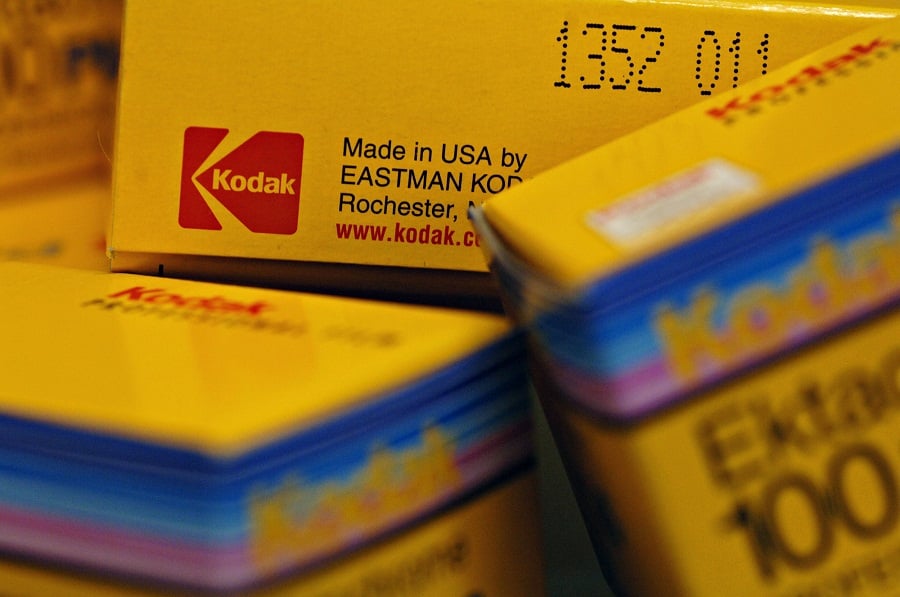“You either disrupt your own company or someone else will.”
With that quote, Peter Diamandis, an international pioneer in the fields of innovation, incentive competitions, and commercial space, set the crowd abuzz at the TD Ameritrade National LINC 2015 Conference in San Diego.
Mr. Diamandis told a story about Kodak that is a warning shot across the bow for all of us.
In 1975, Kodak invented the digital camera. And what did the company do with it? Nothing! It would have been too disruptive to Kodak's highly profitable film business so it sat on it for years. Despite Kodak's lack of digital progress, the company thrived for the next 21 years and by 1996, it had a $28 billion market cap with 95,000 employees.
But the good times didn't last. In 2012, Kodak went bankrupt.
What happened?
As a Wall Street Journal article
noted at the time, “Kodak's top management never fully grasped how the world around them was changing. They hung on to now-obsolete assumptions about who took pictures, why and when.”
One driver of change in the picture-taking business was Instagram.
In the same year as Kodak's bankruptcy, Facebook acquired Instagram, a digital imagery pioneer, for $1 billion. And how many employees did Instagram have? Just 13!
Kodak refused to disrupt itself and it went kaput.
“Linear-thinking companies are being put out of business by exponential technologies,” Mr. Diamandis said. Kodak was linear. Instagram was exponential. End of story.
Don't make the same mistake.
ELEPHANT IN THE ROOM
The elephant in the room for financial advisers is robo technology. It is an exponential technology that can put you out of business if not handled properly.
Now, I know what you're thinking. It took 37 years for digital camera technology to put Kodak out of business so why should I worry about robos? I've got plenty of time to get my robo-strategy in place, right? Wrong.
“The only constant is change, and the rate of change is increasing,” Mr. Diamandis said.
Robos are relatively small now but are growing exponentially. Consider this: A $1 million revenue RIA company growing at 10% per year for 10 years will turn into a $2.6 million company.
(More: 4 reasons financial advisers are better than robo-advisers)
By contrast, a $1 million revenue robo-company growing exponentially at 100% per year for 10 years will become a $1 billion revenue behemoth.
The point is simple — exponential technology and the companies that harvest it will eat you alive if you just continue with business as usual.
100 IS THE NEW 60
Robo-technology isn't the only thing you should be thinking about.
Imagine being 100 and having the health of today's average 60-year-old?
Some interesting things come out of that. For example, how would that change the way you do financial planning? How would it affect the traditional retirement age of 65? How would it affect our economy if people didn't retire from their careers until they were in their 90s?
This is no fantasy. Mr. Diamandis co-founded a new company called Human Longevity Inc., whose goal is to make 100 years old the new 60. It uses synthetic biology, one of eight exponential technologies identified by Mr. Diamandis, to create a modern-day fountain of youth.
Robo-technology and synthetic biology are just two examples of exponential technology and companies that are rapidly changing the nature of business and life. Don't be like Kodak and ignore the changing world around you.
Here are three things you can do right now to embrace and profit from these exciting changes.
1. Educate yourself. Go to conferences where people like Peter Diamandis are speaking. Read his books, "Abundance: The Future is Better Than You Think" and "Bold: How to Go Big, Create Wealth and Impact the World." Consider joining Singularity University, Abundance 360 or The Genius Network, which are three organizations at the forefront of exponential thinking. Follow my writing and podcast at
Belay Advisor for the latest ideas from me and other big thinkers.
2. Develop and implement a robo-strategy. Ditch your high account minimums and create tiered service levels. Partner with one of the robo-firms such as Betterment, Jemstep or Upside Financial to create an online investment service that meets the needs of increasingly tech-savvy consumers.
3. Change your thinking. Get rid of your scarcity mindset and think abundance. Think about how to apply exponential thinking to make the pie bigger for everybody.
Let me leave you with this final challenge from Mr. Diamandis: “Where inside your company are you taking moonshots?”
Don't settle for 10% improvement when 10X is within your grasp. Don't bury your head in the sand like Kodak did. Be brave. Be bold. And be successful.
Steve Sanduski is a New York Times bestselling author and president of Belay Advisor. Follow him on Twitter @SteveSanduski.







